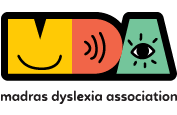
Parental support with reference to LD child
Parenting
By Mrs. Brinda Jayaraman (Mrs.Brinda Jayaraman runs an organisation, 'Anchor For Self Help Access' (ASHA), wherein she organizes regular workshops on parenting skills and communication).
Each family needs to concentrate on communication with their children, which is the key to adept parenting and my speech is about this communication with their children, particularly with a child with special needs. Living with a child with special needs means constantly moving towards approximating the norms of the society, norms in terms of developing predictable responses and implementing conflict resolution. Dr.Kilhar of George Town University calls this the ‘Strategies that encourage the esteem of the individual and family’, which I think is the most appropriate quote here. My speech is going to deal with this role of the family and its significance to children with Learning Disability.
Above all, in families with an LD child, we find that ‘acceptance’ is the main issue and the parents need more counselling than the child, to recognise the fact that ‘early intervention’ is the key to their child’s normal development. We find that it is very hard for parents to accept the fact that has been communicated to them by the teachers of their children right from the kindergarten classes; that their child needs special care. They would have been alerted by these teachers that their child was not reading or writing,but they will be misguided by their elders at home that this is ‘a natural phenomena’, which will just ‘fade away with time’ and by the instances of this or that relative ‘being’ the same way! This wrong guidance of ‘fading away with time’ dissuades them from looking for a counsellor or medical help until it is too late. Mostly they come to affirm whether what they have been told is true and by that time the damage has been done to the self-esteem of the child. The mother of the child will be doing most of the talking, while the father will look as if he has been dragged into the session/situation about which he has nothing to do. He has been very ‘busy’ lately and only ‘she’ deals with it. ‘She’ needs counselling as she even ‘cries’ about it and not ‘me’! The major problem lies in these attitudes of the parents. Though I do think that parents are not to be blamed entirely as they constantly compare them to the ‘normal’ children from the mainstream, their handwriting, spellings and language expression etc., are the only norms available. This pulls the parents down, makes them feel inadequate and they pass all this to the child. They bombard them with a mass of questions about the school, class and homework, allowing the child no respite to think or answer.
The cornered mother wants to somehow set things right by reacting hastily from her blind corner, when nothing else works, unaware of the lifelong harm done to the child. Finally, she ‘gives up’ and they end up running from pillar to post in search of a cure.
Approval by key adults, self-achievement and self-expression are the cornerstones, the nourishment for any child’s growth. The parent must understand that the emotional needs of any child, with or without LD, can be provided only by the key adults (parents and family) and it is on their approval that a child’s healthy development lies. I would like to give one example of this situation here. A child would have done its best, finished some tasks committed in the counseling session. While we review it, I would look at the work done by the child, while the parent will keep complaining about the part not done. They will comment: “The child is committed to doing, but did not”. They do not understand that the child tries their best, but is not appreciated for their effort.
Parents should understand that the child’s time and effort alone need appreciation and should not always worry about the results. They should be sensitive about the child’s longing for approval, as approval is the delightful thrill that boosts their self-achievement and thereby their self-esteem. If the child is good in other fields, appreciate them and please do not pass terrible comments like, “Who wants this prize?” “Remember what marks you got in maths”. The child gets frustrated when their achievement is minimised by the parent.
Self-expression gets stunted when there are siblings who may not have this problem. The child compares themself to their siblings even when the parents do not. They decide that they are not capable, simply because they cannot do what the siblings can do. So, the following conclusions are clear from the above situation: Parents start getting angry when they cross the threshold of their patience and the impact of their verbal/physical abuse on their child is serious. The child is humiliated and stops behaving because of fear as they interpret their anger as withdrawal of love. So, the child learns an aggressive model of behaviour.
I want to bring your attention to what happens to the child during the whole process. The impact of punishment is very detrimental to the child and they form negative impressions about the parents’ love, not understanding that the anger arises out of concern. The child thinks the parent loves the neurotypical sibling more than them, even though the parents do not discriminate between the two.The child starts believing that and perceives their anger as lack of love. So, parents who shout are surely giving the wrong message to their children. The child interprets their shouting as ‘I am withdrawing my affection for you’. By shouting or physically punishing, firstly we are humiliating the child. Secondly, we are hurting their ego and damaging their self-esteem. In the future this is going to become a pattern. You shout and the child obeys. Or the child is going to lie. The parents’ disapproval is going to make the child do dishonest things. This unpleasant and aggressive model is going to be the base of the child’s future activities.. Parents should not forget that a child learns by imitating, not only their actions, but also their words.
Punishment in any form does not produce a positive change in a child. In adolescence, fear becomes rebellious behaviour. Even a docile child can become aggressive.
How can a family involve themselves in the development of an LD child?
• Participation by every family member.
• One window.
• Family responsibilities to an LD child, making academic activities interesting. Praise and encouragement. No verbal ‘put downs’.
• Support groups.
As parents of LD children, they must follow the above consistently as a supportive measure. Associations like MDA, counsellors, special needs instructors are available to the parents. Multiple parenting will confuse the child. For example, watching T.V. While the mother permits the child to watch, the father disagrees and they start quarrelling in front of the child.
The LD child should understand that they have responsibilities to fulfill. For example, homework. The parents go out of their way to find out about the homework, which in turn helps the child shirk the task. The challenge here is for the parents to make it interesting.
Encouragement is very essential for an LD child. Resilient children do not need it so much. A child whose self-esteem is very low, who is hopeless in dealing with academic difficulties, has to make up for what they have lost, encouragement is crucial. Avoid verbal ‘put downs’ under any, even trying circumstances.
Styles of parenting:
– Effective communication
– Listen actively (use magic words)
– Validate feelings
– Effect of words you use: 15%, your tone: 30%, your body language: 55% Maintain eye contact.
– Be observant about non-verbal clues
Never ignore their excitement. Be interested in whatever they want to say. Validate their feelings. For example, when a child complains that their bus driver yelled at them, and everybody laughed at them. Perceive the hurt feelings behind the statement. Label it and give it back as a paraphrase to the child.
Ask questions like – ‘Were you embarrassed?’, ‘Did you feel awkward?’. This will let him know that you have understood and are empathizing with him, which will help him to open up more with you. E.g. ‘Ayesha is moving away and she is my best friend’.
Questions by the parent: ‘Are you feeling sad?’ Are you missing her?’ Hug her and that will soothe her feelings more than just words. Body language can express and convey your feelings much more than words ever can.
Always be aware of how you are projecting yourself on to the child. They are very smart and will assess and validate you by your actions. They can understand you by the very way you communicate. Remember that a democratic parent, a balanced parent should be very effective in communicating. Scars that happen when you put them down because of your words or actions will take a very long time to heal. Whatever your anger, frustration, turn them into positive words/actions. E.g. “I like the way you do things. But if you could do it better it would be fine!” Make DON’T messages into DO messages.
I would like to end my talk with an anecdote- There was a girl called Wilma, from a poor family from Tennessee. She was affected with polio when she was four years old, but her dream was to participate in the Olympics as an athlete. Everyone who heard this laughed at her, but her mother did not. She encouraged Wilma to such an extent that she went on to win in the Olympics at the age of 16. Her mother often told her, “Ability is what God has given you. The letter ‘Dis’ is added by man. You forget it. You have the ability to run and you will do it.” Wilma went and did it because she had a parent who believed she could do it.
